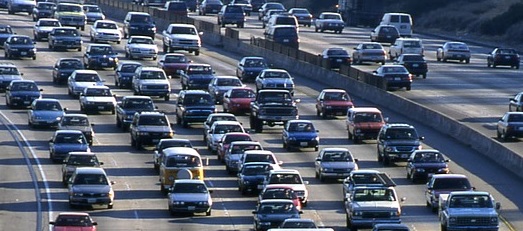On average, Americans lost 99 hours a year due to congestion, costing them nearly $88 billion in 2019, an average of $1,377 per year, according to the 2019 Global Traffic Scorecard developed by INRIX, a provider of transportation analytics and connected car services.
The report found that From 2017 to 2019 the average time lost by American drivers has increased by two hours as economic and urban growth continue nationally.

In the US, the 2019 Global Traffic Scorecard analyzed congestion in the top 66 urban areas. For the second consecutive year, Boston ranked as the most congested city in the US with the average commuter in the metro area losing 149 hours per year to congestion, costing $2,205 per driver in time lost.
Chicago (145 hours, $2,059 lost), Philadelphia (142 hours, $2,016 lost), New York City (140 hours, $1,988 lost) and Washington D.C. (124 hours, $1,761 lost) rounded out the Top 5.
While known historically for its congestion, Los Angeles’ (ranked sixth in congestion; 103 hours lost in 2019) constant gridlock does not have the severity as the other top-ranked cities due to its sprawling geography and massive road network. On the other hand, Wichita, Kansas, for the second year in a row, had the lowest congestion levels in the US with drivers losing less than two hours a year.
“Congestion costs Americans billions of dollars each year. However, it appears to be stabilizing in some of the country’s most congested metros – with delays raising roughly three percent nationwide since 2017,” said Trevor Reed, Transportation Analyst at INRIX. “The continued innovation and investment in smarter roadway management is showing early signs of progress. To reflect an increasingly diverse mobility landscape, the 2019 Global Traffic Scorecard includes both public transport and biking metrics for the first time.”
The scorecard identified and ranked congestion and mobility trends in more than 900 cities, across 43 countries.




